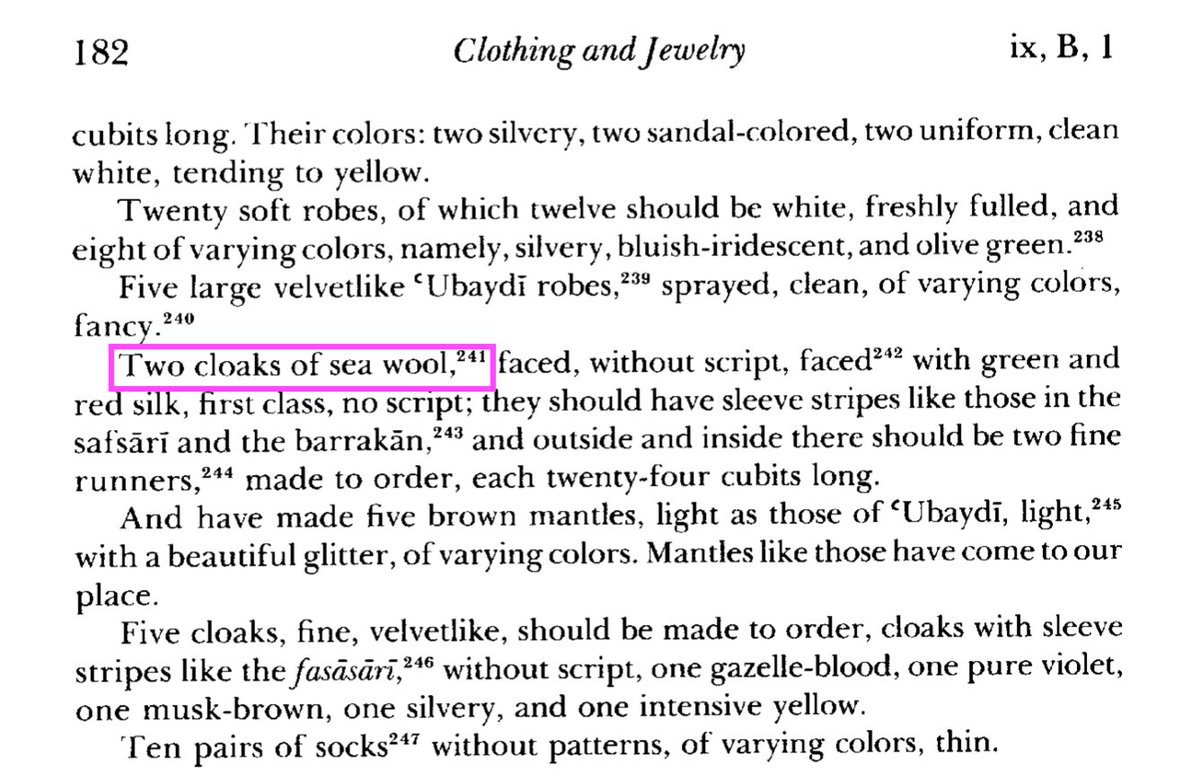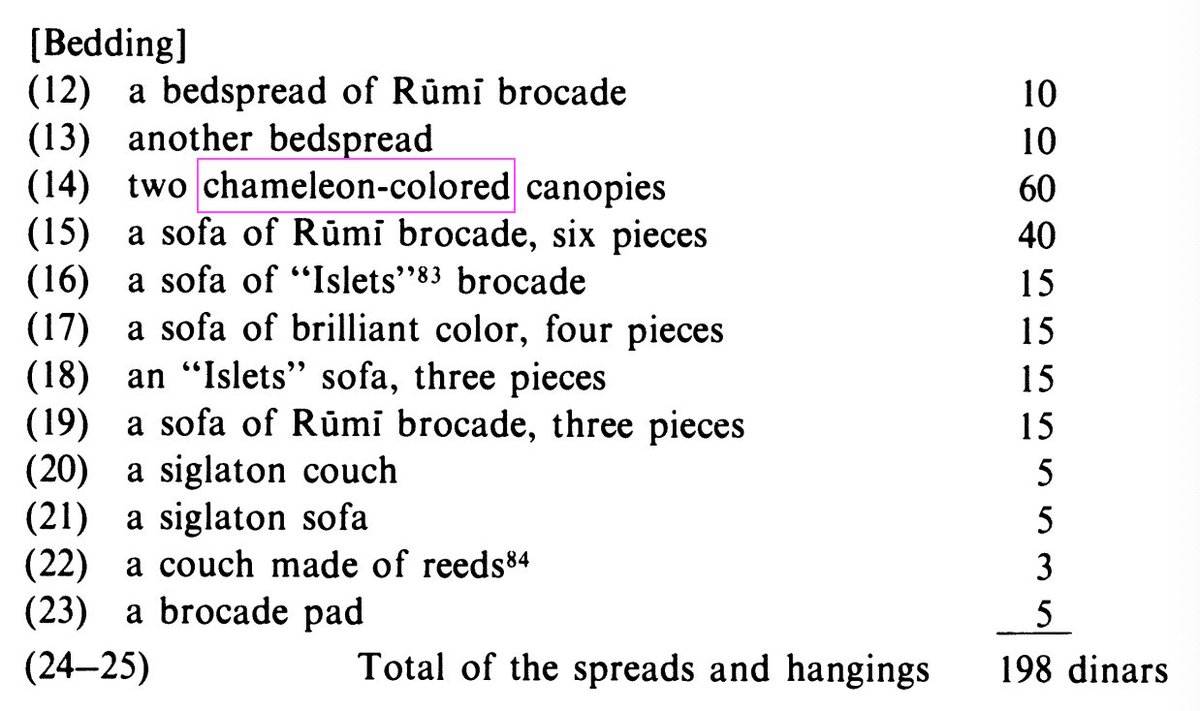What do the western swamphen and a 12th-century Jewish bride in Old Cairo have in common?
🧵 on the words qalamūnī and būqalamūn

🧵 on the words qalamūnī and būqalamūn


This manuscript (1128–53 CE) is the dowry list of the richest woman in the Geniza. She has gold, amber, a Chinese pen-box, an ivory kohl container, a personal bloodletting kit, and lots of the precious fabric siqlāṭūn also worn by Chaucer's Sir Thopas (librarius.com/canttran/thopa…) 



If this looks familiar, @mrustow tweeted the same document last year:
https://twitter.com/mrustow/status/1392541236968448005
Qalamūnī or būqalamūn was an iridescent or moiré fabric produced only by the weavers of Tinnīs in the Nile Delta, according to the 11th-century Persian traveler Nasir Khusraw, who was especially impressed by it:
ganjoor.net/naserkhosro/sa…
gallica.bnf.fr/ark:/12148/bpt…

ganjoor.net/naserkhosro/sa…
gallica.bnf.fr/ark:/12148/bpt…


In modern Persian, būqalamūn mainly means turkey!
Encyclopaedia Iranica explains that this is on account of the turkey's "iridescent black plumage" and its "erectile caruncles that change color with the bird’s mood, going from red to blue and violet."
iranicaonline.org/articles/buqal…
Encyclopaedia Iranica explains that this is on account of the turkey's "iridescent black plumage" and its "erectile caruncles that change color with the bird’s mood, going from red to blue and violet."
iranicaonline.org/articles/buqal…

But before it meant turkey, it meant chameleon.
Which is why Badīʿ al-Zamān al-Hamadhānī (d. 1007) could have his trickster character say "I am an Abū Qalamūn, I come in every color."
أَنَا أَبُـو قَـلَـمُـونٍ فِي كُلِّ لَوْنٍ أَكُـونُ
ar.wikisource.org/wiki/%D8%A8%D8…
Which is why Badīʿ al-Zamān al-Hamadhānī (d. 1007) could have his trickster character say "I am an Abū Qalamūn, I come in every color."
أَنَا أَبُـو قَـلَـمُـونٍ فِي كُلِّ لَوْنٍ أَكُـونُ
ar.wikisource.org/wiki/%D8%A8%D8…

The Persian poet Saadi of Shiraz (d. 1291/92) wrote, "The breeze had spread out an iridescent (būqalamūn) carpet in the shade of its trees"
باد در سایه درختانش گسترانید فرش بوقلمون
(from the Gulistan, trans. Thackston)
en.wiktionary.org/wiki/%D8%A8%D9…
flickr.com/photos/danwikl…
باد در سایه درختانش گسترانید فرش بوقلمون
(from the Gulistan, trans. Thackston)
en.wiktionary.org/wiki/%D8%A8%D9…
flickr.com/photos/danwikl…

The etymology is a bit uncertain. Most sources say that the word comes from the Greek hupokálamon/ὑποκάλαμον, supposedly meaning striped fabric, but the Encyclopaedia of Islam is skeptical:
referenceworks.brillonline.com/entries/encycl…
referenceworks.brillonline.com/entries/encycl…
There's also a school of thought that identifies qalamūnī fabric with sea silk or sea wool (ṣūf al-baḥr in Arabic), an exquisite material spun from the adhesive "beards" of the massive mollusk Pinna nobilis.
academia.edu/34557702/Merma…
geniza.princeton.edu/pgpsearch/?a=o…


academia.edu/34557702/Merma…
geniza.princeton.edu/pgpsearch/?a=o…



As for the western swamphen? It's called the common calamón in Spanish.
reddit.com/r/etymology/co…
dle.rae.es/calam%C3%B3n?m…
reddit.com/r/etymology/co…
dle.rae.es/calam%C3%B3n?m…

The end!
Here's the digitized transcription for the dowry list on the Princeton Geniza Lab database: geniza.princeton.edu/pgpsearch/?a=o…
And here's the link to S. D. Goitein's original 1977 article where he translated the document:
jstor.org/stable/1486311
Here's the digitized transcription for the dowry list on the Princeton Geniza Lab database: geniza.princeton.edu/pgpsearch/?a=o…
And here's the link to S. D. Goitein's original 1977 article where he translated the document:
jstor.org/stable/1486311
• • •
Missing some Tweet in this thread? You can try to
force a refresh










